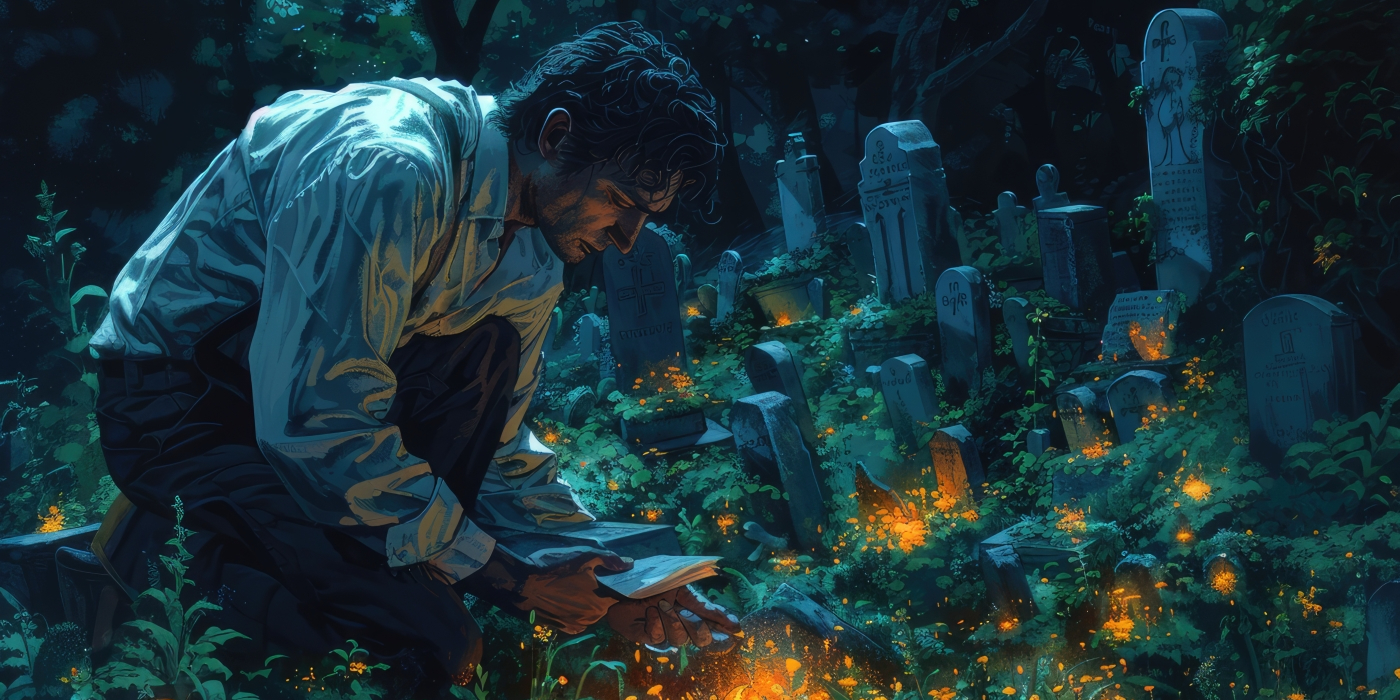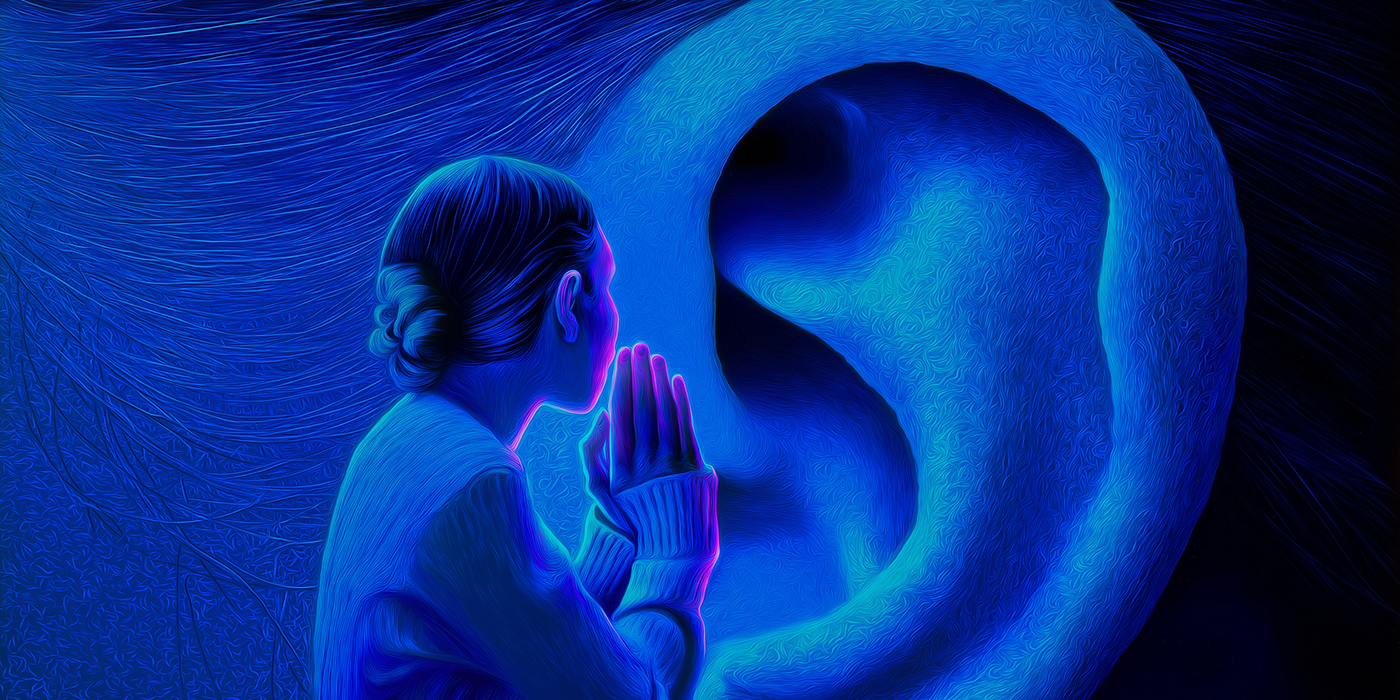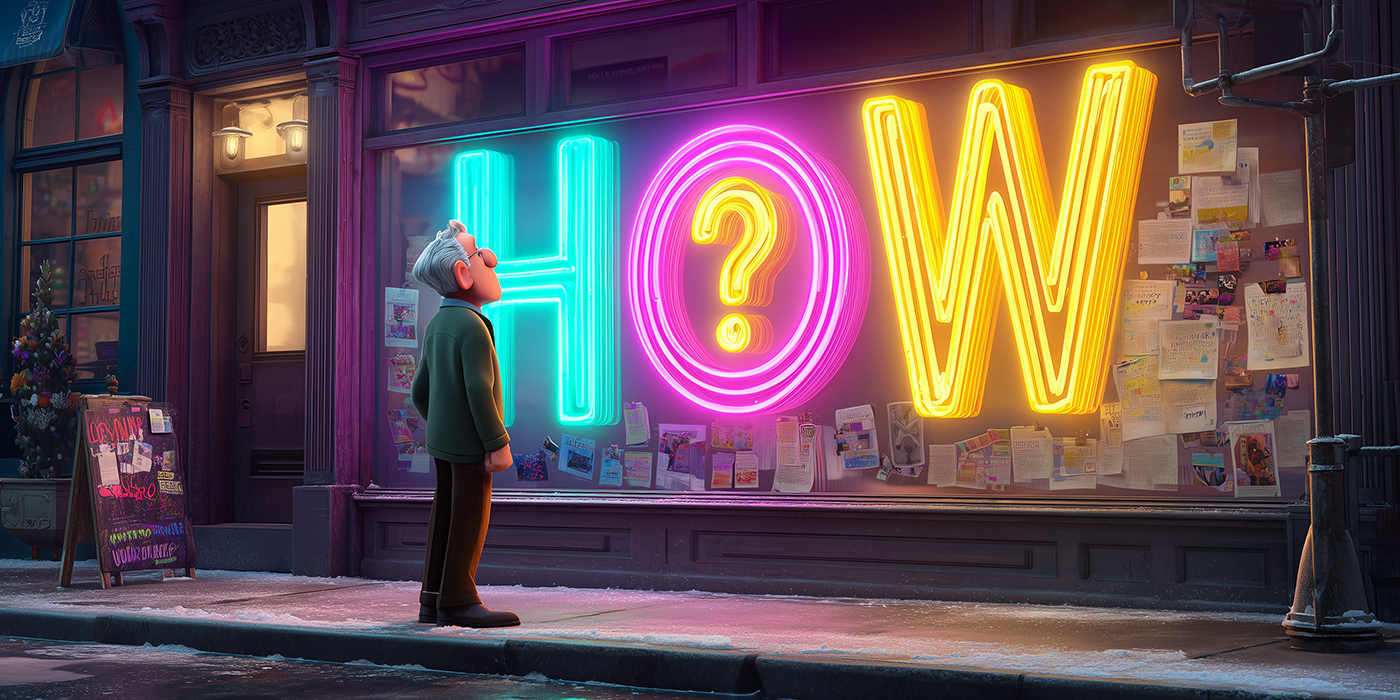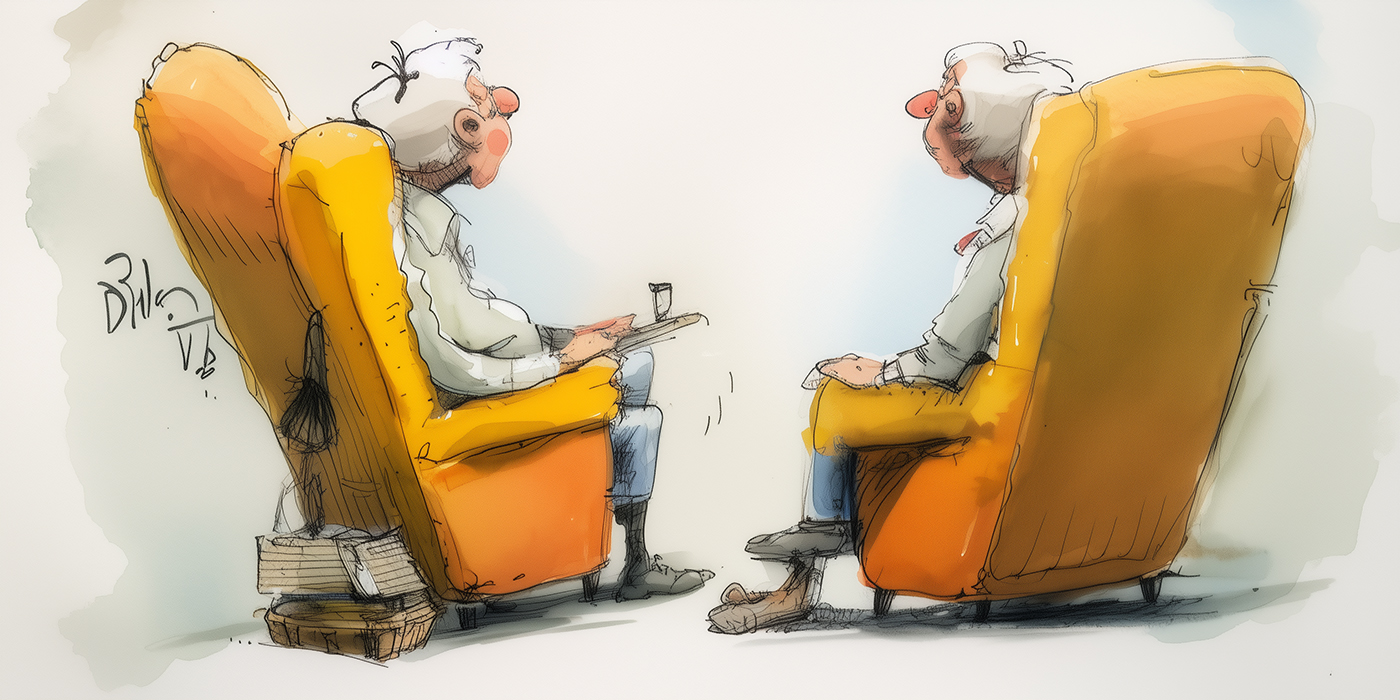
For the typical lust addict, our whole system screams out that we’re going to die if we don’t take that “drink.” It’s too fearful not to drink. Lust is our spiritual life-support system. Yes, the fear is that real. So, we wind up drinking. We’re hooked on it and remain a slave. It’s the fear of this kind of death that keeps us in bondage and forces us to keep slipping with lust.
The sad fact today is that so many of us remain in bondage to lust because of this very threat of death. We are unable or unwilling to connect with the Life-giver instead. We can’t break through this death-barrier; we shrink back at the death-threat of not drinking. It’s so unnatural for us not to lust or misconnect. Ours is the compulsion of the look, the fantasy, or the misconnection, which when denied, is the very threat of death. But eventually we learn the hard way that for us to drink is to die. So recovery is learning to act against the fear—to lean into the fear—and go ahead and die. So we can live. The amazing paradox of our program.
This is why the decisive action-point of our malady is the instant of temptation, typically in the look, the memory, or the fantasy. That’s where we face the feeling of death each time. And that fear drives us to resort to that drug again and again and again. So we won’t die! We’ve used and heard all kinds of formulas on how to deal with it. Some are foolish or frantic, such as the three-second rule: “If you look for over three seconds, you’re lusting.” Variations on such formulas are ingenious. (What’s yours?) As though lust had anything to do with duration. Lust has nothing to do with duration and everything to do with intent. If the intent is to snatch a quick drink, does it really matter how long it is, or even what we see? No, the intent is what we are. We need salvation from the intent, from the disposition of our heart.
Most of us initially feel it’s something we must do to get out of it. “I shouldn’t be doing this!” we say to ourselves, as we go ahead and take the drink. This tells me that we don’t fully understand the nature of what we’re dealing with and that we underestimate the strategies of spiritual blindness and denial. We don’t comprehend that lust is a disposition of the heart, an attitude. We rely on our own efforts—even our prayerful efforts—to save us. (Who says religious exercises can’t support the illness?) This is why so many of us—sober from “acting out”—do not recover from acting in. Mere sexual sobriety just deals with externals. Sober is not well. The tragedy in such lust-avoidance or lust-distraction techniques is that we can still “feel better about ourselves” and support the illness.
Is Victory Over Lust Progressive?
Our program affirms that “true sobriety includes progressive victory over lust.” How can there be any argument with that? We know of no instant cures from lust yet (though we keep an open, if skeptical, mind). But our relation to this sobriety definition may be too shallow. We can abuse it. We can hide in it. So let’s examine the question: Is there such a thing as progressive victory over lust? There are two ways of looking at it.
On the one hand, I came slowly to see in my own progressive recovery what lust is and the many ways I denied and blinded myself to what was really going on. Apparently it takes a certain amount of recovery to begin to see lust for what it is. I didn’t discover lust as the underlying pathology until I stayed sexually sober. The overt “drool” is merely one of the more obvious forms. What about addiction to Woman or Man—“Connect with me and make me whole!”? What about the “wandering heart”? Ours is preeminently the malady of the misconnection. What about lust in the marriage? Lust is cunning, baffling, and powerful, and more gets revealed. In this sense, victory over lust is progressive.
On the other hand, in the instant of temptation, there is absolutely no such thing as progressive victory over lust. Any rationalizations we have notwithstanding, whenever that image, that fantasy, or that memory hits, we either lust or we don’t. We either drink or we don’t. There’s nothing progressive about it. There’s no in-between. Suppressing it through will power might be considered kind of an in-between, but not really. Suppression or repression—will-powering it—is just another avoidance technique which may be worse than consciously going ahead and lusting. Worse because in that forced ascetic denial, we think we’re making it. But the lust is still there inside, building up steam. It’s like saying I really want to lust, but for whatever reason, I will put it away. That’s really not surrendering it to God. It’s locking it in a cage deep within. That’s not victory over lust; it’s merely trying to put a bridle on it, putting lust on hold. There’s no freedom in suppression, only more fear. And it all lodges in the subconscious, storing up energy, only to bust out later in dreams or get expressed in other forms, such as resentment or even self-loathing, or cross over into other addictions, such as food or TV. For the lustaholic, there’s no way out of our awesome dilemma. Except the Program way of surrender to God, dying to it, and being released from it in that moment of temptation.
In AA we hear the expression, “Resentment is the number-one killer of alcoholics.” With us, the killer is lust. “Lust kills the spirit …Lust kills me” (White Book, p. 44).
Too often this idea that victory over lust is progressive becomes the excuse for aborting true recovery. “I’m sober so many years” equates to “I’m okay now.” As if calendar sexual sobriety is the “real” sobriety. Or, as we hear so often, “I’m dealing with lust the best I can; it’s a goal to aim toward.” More often, we hear nothing at all about member lust temptations. The person who calls himself technically sober is still drinking. Missing out on true recovery. This is tragic and damages group and Fellowship unity. Continuing sexual sobriety is only the prerequisite for recovery. The recovery which our program promises is being saved in that next temptation, being released from its power. Instead of being self-driven or fear-driven, recovery is the victory of impossible joy.
Therefore, the first and only line of defense in a lust temptation must be a changed attitude of the mind and heart. If that attitude is a decision to give up lusting in surrender and reliance on God, that attitude will be in place before we’re even tempted. Then, when hit with the image, in that first blink of an eyelash, the Shield of his presence is already in place, and you don’t have to do anything. Victory over lust is where you are in your attitude with your Lust-bearer, not what you do. The Shield is already in place, and you don’t have to do anything. That’s where we are either saved from it or not. Victory over lust begins with the daily decision to give up lust to God. Deliverance in the moment of temptation follows as a consequence. Morning and evening, I ask him to keep me sober from every lust.
Real Recovery
We may have this whole idea of sex addiction sobriety backwards. We need to consider and talk about this very seriously. Victory over lust is the real recovery, and continued recovery from acting out sexually flows from that. There is no true recovery if all we’re doing is not acting out. Merely not acting out only minimizes the real problem, which is acting in. Question: Should the persistent practice of acting in be considered sober? More and more people are saying No.
On coming into the program, most of us are mainly concerned with stopping the acting out. That’s what we thought was killing us. But once sober, we begin to see the real problem. Remember that our program is aligned with the AA model of not drinking. But ours is an internal drug, the alcohol of the spirit. How does SA’s Third Tradition read?—“The only requirement for membership is a desire to become sexually sober”? No. It reads, “The only requirement for membership is a desire to stop lusting,” then adding, “and become sexually sober.” Think about it. We need to get down to the nitty-gritty basics. The Calendar Sobriety Syndrome is killing us! I laud those who are beginning to set their dates back with a decision to stop acting in. Let’s encourage and support one another in breaking through the Lust Barrier. Maybe that’s the SA equivalent of AA’s statement of “separating the men from the boys.”
It’s Impossible
This is where we’ll discover that true sobriety from lust by our own doing is impossible. This is where we’re up against our real powerlessness and have no recourse but to the One who can restore us to sanity in the very temptation. I wonder if it would not be better to challenge people right up front with the fact that recovery is impossible without victory over lust. Once we discover we’re powerless over lust, let’s challenge each other so we don’t hide it. Let’s keep bringing it into the light.
For myself today, I am absolutely powerless over lust in some form or other. But there is One, who himself is my victory over it, whenever I go through that fear of death, die to the temptation, upward to him, and bring him in, personally, savingly. It works. He works!
We should honestly face this impossibility of a “lust cure” so people will be forced to find their saving connection with God before settling into either the Slipper Syndrome or the Calendar Sobriety Syndrome or shifting from acting out to acting in. Why not state the nature of this problem as it really is, right up front: True recovery—joyous victory over lust—is utterly impossible without finding God, cleaning house, and working with others. That is the distilled essence of the original Twelve Step program. Have you found God in your lust? Fear of dying to lust holds us in bondage to the slavery of impossible addiction. And the longer we’re in the Fellowship of recovery, the clearer we see the true spiritual nature of our addiction and our utter dependence on a Power greater than ourselves, greater than our lust. But in each temptation—over and over again—we, you and I, must be willing to go through the threat of death to discover that there really is life after lust.
The whole point here is that we don’t have to lust at all. We can and will be tempted—by triggers, memories, and fantasies—but we don’t have to drink at all. We can have total victory over lust in that next temptation, which is all we ever need. There is no victory over lust before the fact! No silver bullet that makes us immune. The victory is in the prior attitude, before we’re ever tempted, in the intents and disposition of our heart. We either have it or we don’t. And it’s our choice, either for the god of Self, the god of Lust, or for the One who is eager and able to save us. The choice is ours. The choice either to give up, to die to self, to die in that next temptation, or to drink. Thus, victory over lust, our Great Impossible, becomes The Great Possible! We can discover and experience the expulsive power of a new affection. This is our calling, our hope, and our great joy in fellowship.
Roy K., Simi Valley, CA






